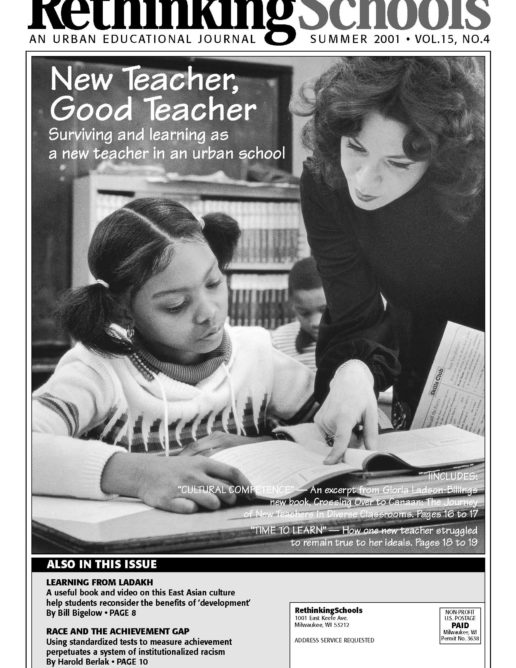Preview of Article:
Resisting High-Stakes Tests
But look for big changes in Spring 2002. In a development in Massachusetts that could shake the power structure to the core, the presidents of the Brockton, Brookline, Lexington, Newton, and Quincy education associations, and the former president of the Natick association, have joined with the group New Democracy in calling for a Mass Refusal. It’s just as the name implies — a mass refusal of teachers to administer the MCAS (the Massachusetts state-mandated test) and the refusal of parents to allow their children to be tested.
The MCAS (Massachusetts Comprehensive Assessment System) test originally affected public school children in the fourth, eighth, and 10th grades. This year it has expanded to include the third, fifth, and sixth grades. Beginning this year, 10th graders have to pass MCAS to graduate. More than 40 percent failed this test in 2000.
The call for a Mass Refusal argues, in part, that the MCAS “is gutting school curricula, reducing education to a rigid pursuit of performance rather than thoughtful exploration of issues, and imposing a climate of fear. It will drive many students out of school without a diploma, as has already happened in Florida and Texas.” For more information: Dave Stratman, Editor, New Democracy (Newdem@aol.com), 5 Burr St., Boston, MA 02130. Web site: newdemocracyworld.org.

